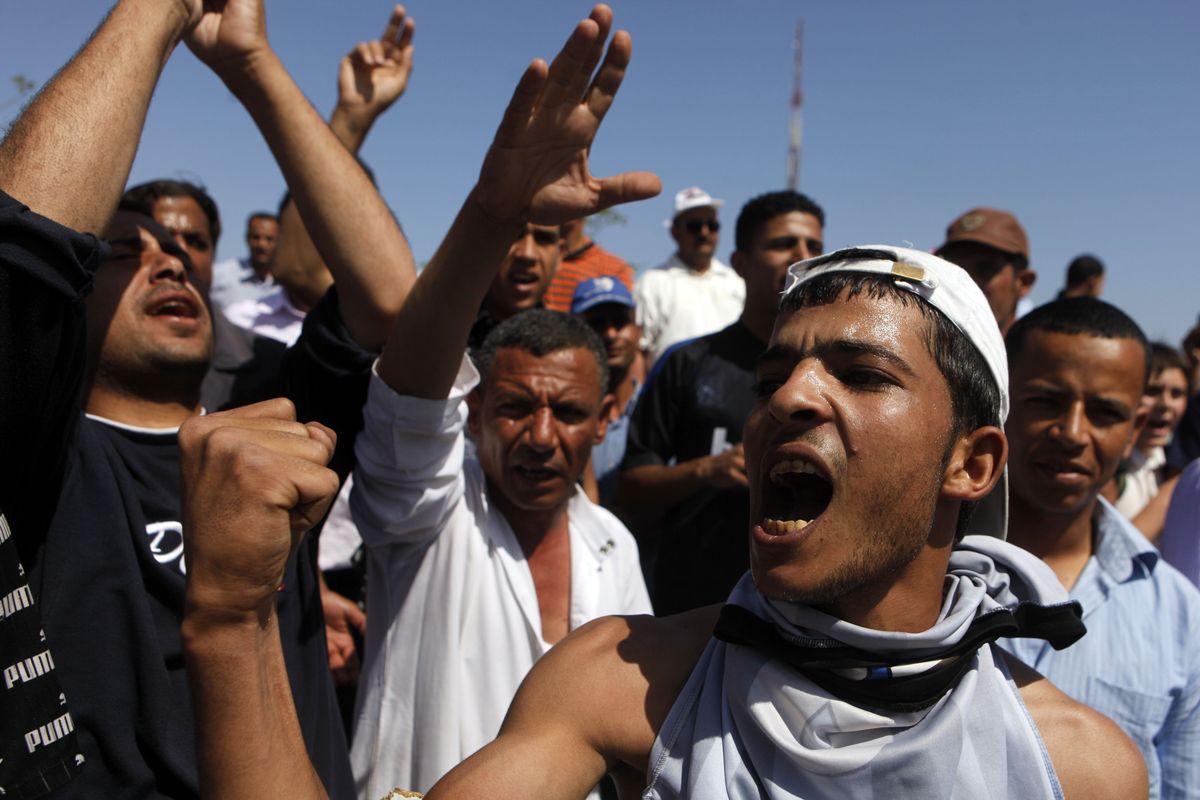Arrest a defining moment for post-Mubarak Egypt

CAIRO, Egypt – For almost three decades he wielded unquestioned power, a seemingly invincible figure ruling with a sense of privilege and ruthlessness that epitomized autocrats across the Middle East.
Even when mass protests improbably forced him from power in February, it appeared highly unlikely that Hosni Mubarak, long a key U.S. ally in a volatile region, would ever be held to account for allegations of corruption and abuse of office.
But that all changed Wednesday, when authorities confirmed the detention of the former Egyptian president and his two sons, a move immediately hailed by many as a surprising but shrewd step by the ruling military council to calm protests in the world’s most populous Arab nation.
“This is a landmark in the history of Egypt and the history of the Arab world,” said a jubilant Alaa Al Aswany, a well-known novelist and pro-democracy activist.
All at once, a long-unimaginable spectacle – a trio of Mubaraks under interrogation for corruption, abuse of power and other alleged crimes, including deadly violence against protesters – seemed like it might become reality. The long-elusive goal of accountability looms as potentially the next accomplishment of what people here simply call the Revolution, the 18 days of street protests that culminated in Mubarak’s resignation Feb. 11.
It is also a sign to the leaders of Yemen, Syria and other nations in turmoil of the risk of ceding power in the face of popular revolts. Yemeni President Ali Abdullah Saleh and Syrian President Bashar Assad have responded with more violent crackdowns than Mubarak did as they seek to prevent protesters from gaining momentum.
A potential criminal prosecution in Egypt would seem to end whispers of political redemption for Mubarak, 82, and his inner circle, including sons Gamal and Alaa.
Gamal, a Western-educated banker and businessman, long considered a potential successor to his father, is under investigation for alleged financial crimes ranging from Cairo to Geneva to London. So is his brother, Alaa, who relied on his father’s connections to force his way into profitable businesses and to intimidate rivals.
The detentions are seen as a wise political move by the military council that now rules Egypt. In recent weeks, the council has been criticized for not going after Mubarak, a former air force commander. Hours after the arrests were announced, the rancor toward the military began to diminish as opposition groups called off demonstrations planned for Friday.
The prospect of Mubarak and his sons in court underscores how drastically the so-called Arab Spring protests have reshaped the contours of the Middle East, a place where presidents and potentates have routinely evaded legal reckoning after lifetimes of repression and corruption.
In fact, many here suspected that Mubarak agreed to step down only after receiving guarantees that he and his sons would never face prosecution. Now it seems any such deal is off the table.
“This is the step we have been waiting to see for a long time,” said Abdel Rahman Mansour, a member of the youth coalition whose protests helped topple Mubarak.
In Cairo’s Tahrir Square, the epicenter of the Egyptian uprising, the stunning news of Mubarak’s detention eclipsed the sense of uncertainty that had prevailed during recent protests questioning the military council’s resolve to proceed against him. Mubarak had been living in his private palace in Sharm el-Sheik since stepping down.
Authorities confirmed early Wednesday that the ailing Mubarak was placed under detention in his hospital room, where he was being treated for chest pains he said had started this week during questioning by prosecutors.
Mubarak’s sons were to be interrogated about corruption allegations at a Cairo prison that normally holds thieves and political dissidents.